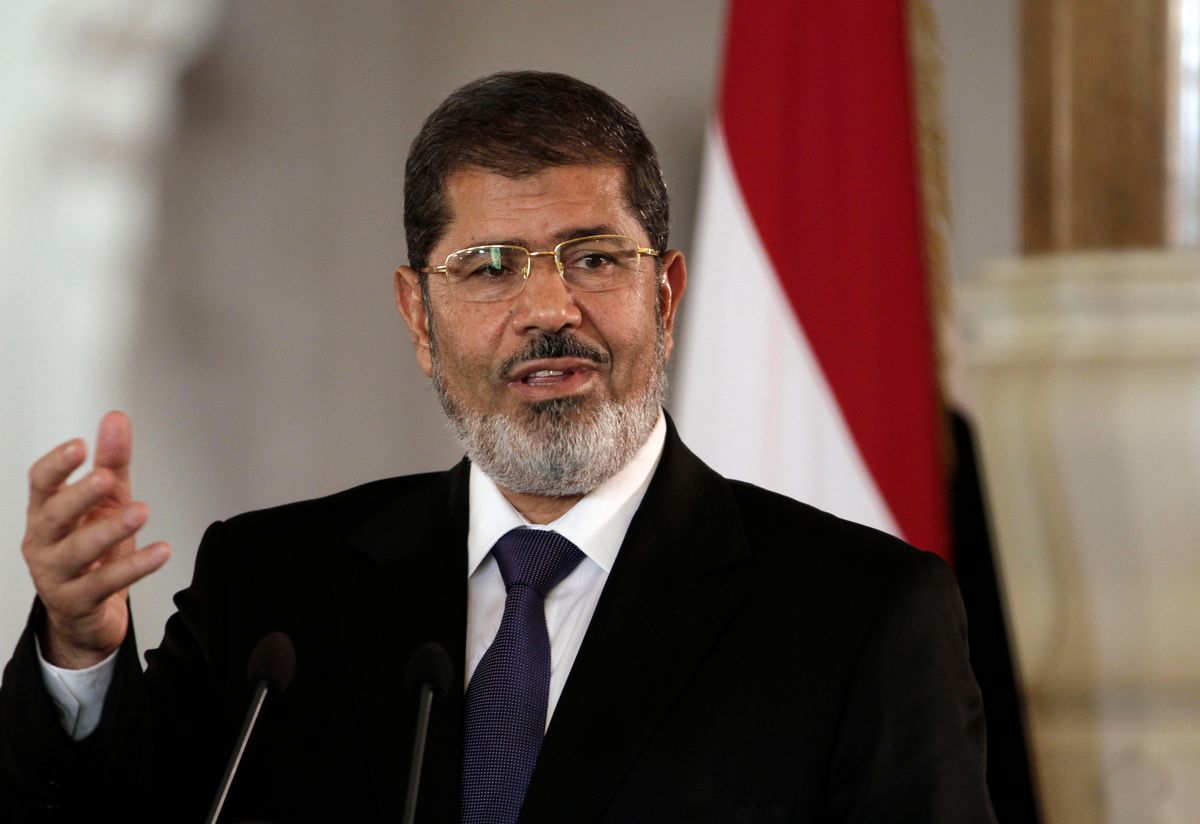 Egypt's President Mohamed Morsi's controversial decree, which vastly expands his powers, will be upheld.
Egypt's President Mohamed Morsi's controversial decree, which vastly expands his powers, will be upheld.
The decree, issued Thursday night, was met with outrage by Egypt's political opposition, which called Morsi's move an "attack on democracy" and a "threat to judicial independence." It also led to demonstrations of tens of thousands on Friday in Cairo and other Egyptian cities.
Presidential spokesman Yasser Ali said late on Monday that Morsi's decree would not be subject to modification and that it may have been "misunderstood" by the public, reported Ahram Online.
"The decree will only immunize the president's sovereign decisions [from legal challenges]," Ali said in a statement after Morsi met with senior jurists, reported UPI. He also said the decree was temporary and stressed Morsi's respect for Egypt's judicial institutions and their independence.
Ali went on to clarify the article in the decree calling for the retrial of police and Mubarak-era officials implicated in killing protesters, Ahram noted. He said the article would only apply "in cases in which new evidence has emerged."
The New York Times characterized this as backtracking from the harshness of Morsi's original statement, although the president's office maintains that the wording of the decree has not changed.
"Morsy did not rescind the original decree ... and it's not clear whether or not his 'explanation' will be enough to defuse the tension in Cairo," Foreign Policy wrote.
According to the Jerusalem Post, the decree states that presidential decisions will enjoy temporary immunity from legal challenge. It also protects Egypt's Islamist-led Constituent Assembly, which has the task of drafting a new constitution, and the Shura Council (the upper house of parliament) from dissolution by court order.

Shares